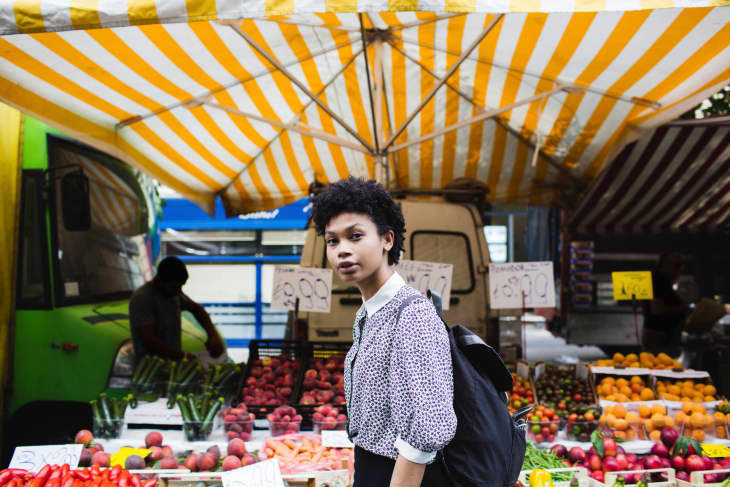The Best Thing You Can Do Before Going to the Farmers Market
Summer at the farmers market is heaven. The smells, the tastes, the delicious meals you can make — everything’s in season and your region’s bounty is on full display. You want it all — every juicy heirloom tomato, all the squash blossoms you can stuff with pimiento cheese, and all the fresh berries for everything from salads and snacks to tarts and homemade sorbet.
But if you want your summer to go well, you have to do one thing before you hit the farmers market: Set a budget. And mostly stick to it.
It used to be easier. Just a few years ago, most farmers market vendors only took cash. You put what you were willing to spend in your pocket, hit the market, and came home with empty pockets and full bags. But with the advent of the Square and other card technology, anything is possible. Anything your credit card will allow, that is.
Sticking with a budget at the farmers market can be challenging — and you may be bracing yourself for disappointment — but it can be a fun challenge, m’kay? So cancel the pity party and head to the market. The food will taste even better when you know you didn’t overspend.
Rules for Sticking to a Budget at the Farmers Market
1. Use cash only.
The easiest way to stick to your budget is by just settling on a budget and only bringing that amount of cash with you.
2. Research what’s in season.
It makes sense that the more plentiful goods will cost less. Know your zone and know what’s being harvested in your area. If everyone’s selling it, it makes sense to go to different vendors to look for the best price.
3. Know your farmers.
Part of what’s great about the market is that you get to know the people who grow your food. Take it a step further and have a conversation about what they’ll be bringing to the market next week, what crops have done well this year, and which ones are more scarce. It’s easier to plan your menu if you know what’s likely to be there. Being a regular and letting people know you’re committed to them is always a nice thing to do.
4. Look for end-of-the-day deals.
Yeah, this has been said a million times — but it’s true! Knowing your farmers can help out here, too, because they’re more likely to look out for a regular customer and offer you the discounted goods first.
5. Have some kind of meal plan.
Knowing what you need to get out of your trip to the market comes first, of course. One of my more expensive buys at the market is a whole chicken. I buy one maybe three times a year. I buy it — and plan a roasted chicken dinner — when I’ve run out of homemade chicken stock. I need the stock to make more meals, so putting off buying the chicken might end up costing more if we have to pay for stock.
More on Meal Planning
6. Be ready to deviate from the plan.
This is where being an experienced cook comes in handy. What if you go to the market to get the ingredients for eggplant parm only to find that eggplants are more expensive than you remembered and there are only a few left? But what’s that over there? Pattypan squash? Fun fact: Slicing pattypan squash instead of eggplant and preparing it the same way is delightful. And that squash parm is another way to use all those tomatoes.
And while you’re at it, you could make extra tomato sauce and freeze it. Then next week at the market, get some of that fresh pasta you’ve had your eye on. Just don’t be derailed by not finding or being able to afford the ingredients you wanted. You probably have a smart phone — look up recipes that include what’s available or, even better, ask the vendors. They often have great tips as to how to cook what they’re selling. Picking up new recipes and making friends adds up to a pretty good Saturday, I think.
Shopping at the farmers market is a commitment. It takes time and effort to coordinate it into your meal plan in a way that works for your schedule and your budget. But when you do? You really win the food game, because you end up with delicious food and you’ve supported local farmers and vendors. Now, isn’t that nice?
What are your tips for sticking to a budget at the market? Let us know in the comments!
